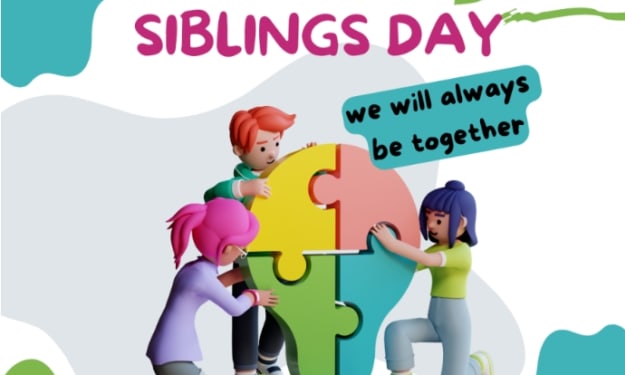8 Things to Do Before Freelancing
There are certain things that we don't consider when becoming self-employed.

There are many reasons you may have for wanting to go freelance. You might be tired of office politics or never felt like you belonged in a traditional work environment. You may even have a disability and are unable to function properly in a typical workspace. Whatever your motivation may be, having control of your work life and doing what you love for a living is a dream come true to many.
That said, it's important to remember that self-employment isn't right for everyone. All responsibility will fall on you, from the day-to-day schedule and important deadlines to budgeting and even the dreaded IT issues. Being ill-prepared in the beginning could end your career as quickly as it started. Still, for those who truly feel that they are up for the challenge, there are several things that they need to consider, and research to death, before making this transition.
1. Go over monthly expenses.
You can't start a business without first knowing how much you'll need to make in order to properly support yourself. Before doing anything, calculate how much you pay every single month. There are even online expense calculators that can add up how much you by each month in rent, utilities, insurance, and even groceries. If you have student loans, factor those in as well. This will give you a set limit for what your income should be.
Also, if you're paying a monthly membership for services that you don't often use, such as online magazines for mailing lists, now would be a good time to cancel them and ensure some extra savings.
2. Create and organize your portfolio.
Whatever work you have done in your chosen field, be it writing or graphic design, organize it all into one saved space. Create a desktop folder that you could send to potential clients. Better yet, create your own website using Wix or Wordpress so you can send them to one spot with all of your needed information.
Heads up: check to see if your past employer(s) has a work-for-hire policy when it comes to your past projects. Showcasing any work done for them on your website could result in legal drama that you were not prepared for.
3. Find a designated workspace.
The most obvious place would be within your own home. If you don't have a separate room to be used as an office space, a small table will work perfectly. As long as it is kept free neat and organized, this will be all you'll need in the beginning.
Depending on when and how your business picks up, you can even consider renting an office space close to home. Not only will it enable you to better balance work and life, but shared office spaces also allow for more interaction and, possibly, easier networking.
4. Set up a schedule.
Ironically, one of the best things about being self-employed is also one of the most daunting: you decide your own schedule. When starting out, it can be very easy to just sleep in every day or even stay up long past your old bedtime. It can also be dangerously easy to take on more work than you're prepared for, causing you to fall behind.
If a nine-to-five schedule is what helps you to maintain your workflow, then stick to it. Get up at the same time every single day, and allow yourself proper time to set up for the day as well as designated break times. When it comes to projects, schedule the big and important ones months or weeks in advance. Schedule time to work on these projects while filling in gaps with much smaller ones.
5. Gather up all your contacts.
Most of the time, your very first clients will be introduced through people you already know. Compile a list of everyone you know who could potentially use your services down the line.
These could be friends from school, neighbors, past employers, or coworkers or even former teachers. If family members have important connections within your chosen field, and you're certain they'll be happy to help, add them to the list as well.
6. Do your research.
How much should you charge for certain projects? Where can you find the most potential clients? What special skills will you need to brush up on? How should your clients contact you? Most importantly, how should your clients pay you?
These are questions that you need to answer before diving head-first into self-employment. From networking events in your area and the average cost of projects to common payment methods for freelance work, learn as much as you can ahead of time in order to look every bit the true professional.
7. Know the law.
We cannot stress this one enough.
According to the Freelancers Union, 70 percent of freelancers have reported issues with getting paid. In 2017, the Freelancing Isn't Free Act was finally signed into law in New York City. While the push continues for other cities to enforce this same act, there are still steps you can take to protect yourself.
A good contract will be your best friend. Be clear as day about payment schedules, amendments, cancelation, and copyright matters. Reach out to other, more experienced freelancers for advice on contract creation. Also, for added back-up, consider doing some research on small claims courts in your area.
8. Network!!
Remember, this is your business and yours alone. This means you play the role of manager, accountant, and marketer. If anyone has to promote your services, it's going to be you.
Local networking events are the perfect place to find additional work and connect with other freelancers who could give excellent advice. You'll also find it's surprisingly common for freelancers to hire each other. Furthermore, trade shows can be perfect for those with interest or knowledge in a specific industry.
For those who are more introverted, online networking is the perfect start. Set up social media accounts, join chat rooms and special groups on Facebook and Linkedin, and use your platform to discuss important issues that impact you and your business.
Once you've finally gathered a substantial client list, offer them special perks for referring your business to others. Always remember: the best clients are the ones who keep coming back.
About the Creator
Jessica Pilla
Darkly-inclined actress, movie-lover, and cat mama fueled by caffeine and carbs. True crime shows relax me.






Comments
There are no comments for this story
Be the first to respond and start the conversation.